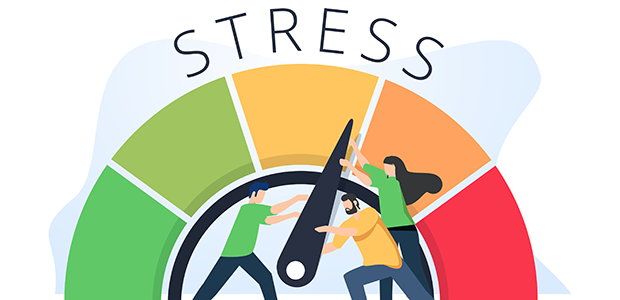Mental Health Tips for Stressed Academic Writers: Student Assignment Help

Academic writing is a demanding process that requires focus, creativity, and critical thinking. Whether you’re working on essays, theses, or research papers, the pressure to perform can often lead to stress, anxiety, and burnout. Stressed academic writers may find it challenging to balance their mental health while meeting deadlines and maintaining the quality of their work.
This article offers practical mental health tips tailored to academic writers, helping you stay productive without compromising your well-being.
The Connection Between Academic Writing and Mental Health
Academic writing often involves long hours of solitary work, intense research, and high expectations. Common challenges that impact mental health include:
- Perfectionism: The pressure to produce flawless work can lead to procrastination and self-doubt.
- Deadlines: Tight schedules can create a sense of urgency that may lead to burnout.
- Imposter Syndrome: Feeling inadequate or unworthy of academic success can undermine confidence.
- Isolation: Spending extended periods working alone can contribute to loneliness.
Recognizing these stressors is the first step toward managing them effectively.
Mental Health Tips for Academic Writers
1. Set Realistic Goals
Breaking down large projects into smaller, manageable tasks can help reduce feelings of overwhelm. Instead of aiming to write an entire chapter in one sitting, set a goal to complete a section or outline.
Tip: Use SMART goals—specific, measurable, achievable, relevant, and time-bound—to structure your writing tasks.
2. Prioritize Self-Care
Academic success shouldn’t come at the expense of your health. Incorporate self-care practices into your daily routine, such as:
- Regular Exercise: Physical activity boosts mood and energy levels.
- Healthy Eating: Nutrient-rich foods support brain function and overall health.
- Adequate Sleep: Aim for 7-8 hours of sleep each night to maintain focus and productivity.
Tip: Schedule breaks during long writing sessions to rest and recharge.
3. Create a Writing Routine
Consistency is key to managing academic writing stress. Establish a daily routine that includes:
- Dedicated Writing Time: Block out specific hours for focused writing.
- Breaks: Follow the Pomodoro technique—25 minutes of work followed by a 5-minute break.
- Reflection: End each day by reviewing your progress and setting goals for the next.
4. Manage Perfectionism
Striving for excellence is commendable, but perfectionism can hinder progress. Accept that:
- First drafts are meant to be messy.
- Mistakes are part of the learning process.
- Feedback from peers and mentors is valuable for improvement.
Tip: Focus on progress rather than perfection to maintain a healthy mindset.
5. Practice Mindfulness
Mindfulness techniques can help reduce stress and improve focus. Consider:
- Meditation: Spend 5-10 minutes daily practicing deep breathing or guided meditation.
- Journaling: Reflect on your thoughts and feelings to gain perspective.
- Gratitude: List three things you’re grateful for each day to foster a positive outlook.
6. Connect with Others
Isolation can amplify stress, so make an effort to build connections:
- Study Groups: Collaborate with peers to share ideas and support.
- Mentors: Seek guidance from professors or advisors.
- Friends and Family: Share your challenges with loved ones who can offer encouragement.
Tip: Join online forums or writing communities to connect with like-minded individuals.
7. Seek Professional Help
If stress becomes overwhelming, consider seeking help from a mental health professional. Many academic institutions offer counseling services tailored to students’ needs.
Signs You May Need Support:
- Persistent feelings of anxiety or sadness.
- Difficulty concentrating or completing tasks.
- Physical symptoms like headaches or fatigue.
Tip: Don’t hesitate to reach out—mental health is just as important as academic success.
Tools and Resources for Stress Management
Several tools can support mental health and productivity for academic writers:
- Writing Apps: Use tools like Scrivener or Grammarly to streamline the writing process.
- Time Management Tools: Apps like Todoist or Trello can help you organize tasks.
- Meditation Apps: Headspace and Calm offer guided meditations and relaxation techniques.
- Support Groups: Join academic forums like Reddit’s r/GradSchool for advice and camaraderie.
Balancing Writing and Well-Being
Finding a balance between academic responsibilities and mental health is crucial. Here are some strategies to help you achieve this:
- Set Boundaries: Establish limits for work and personal time to prevent burnout.
- Celebrate Success: Acknowledge and reward your achievements, no matter how small.
- Stay Flexible: Be willing to adjust your goals and timelines as needed.
Tip: Remember that progress, not perfection, is the key to long-term success.
The Role of Institutions in Supporting Mental Health
Academic institutions play a vital role in promoting students’ well-being. Look for:
- Mental Health Services: Take advantage of counseling and wellness programs.
- Writing Centers: Access resources and workshops to improve your writing skills.
- Flexible Deadlines: Communicate with professors about extensions if needed.
Tip: Advocate for policies that prioritize student mental health, such as reduced workload during exam periods.
Conclusion
Academic writing is challenging, but it doesn’t have to come at the expense of your mental health. By setting realistic goals, prioritizing self-care, and utilizing available resources, you can manage stress effectively and maintain productivity. Remember, seeking help is a sign of strength, not weakness.
Incorporate these tips into your routine to navigate the demands of academic writing while safeguarding your well-being. With the right mindset and support, you can achieve both academic success and mental health balance.
For more guidance and support, explore online student assignment help platforms, writing communities, and wellness resources tailored to academic writers.
